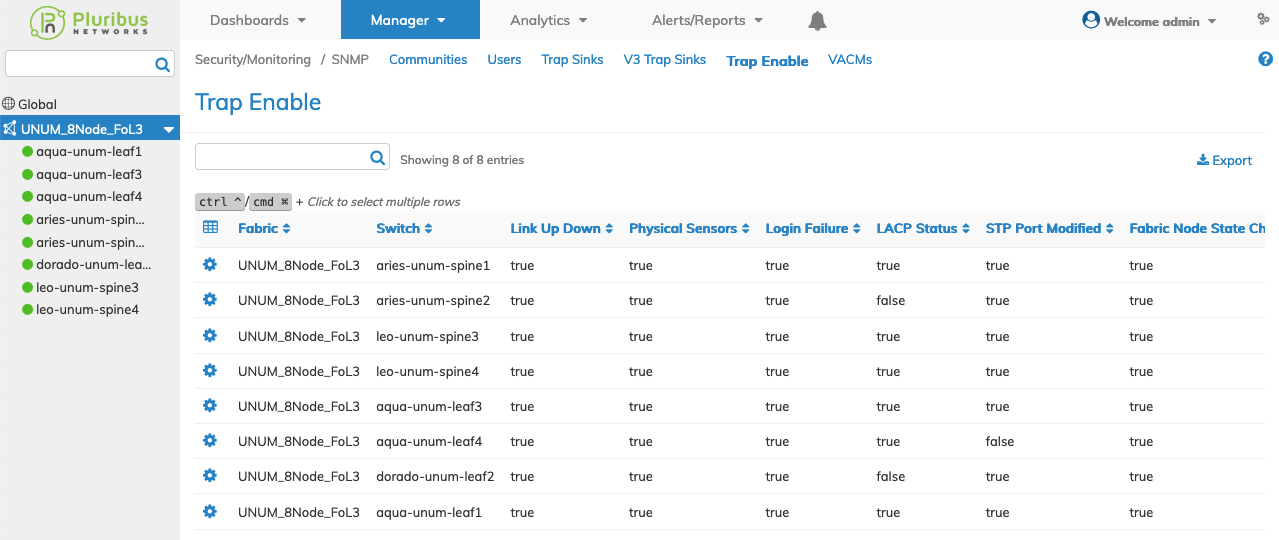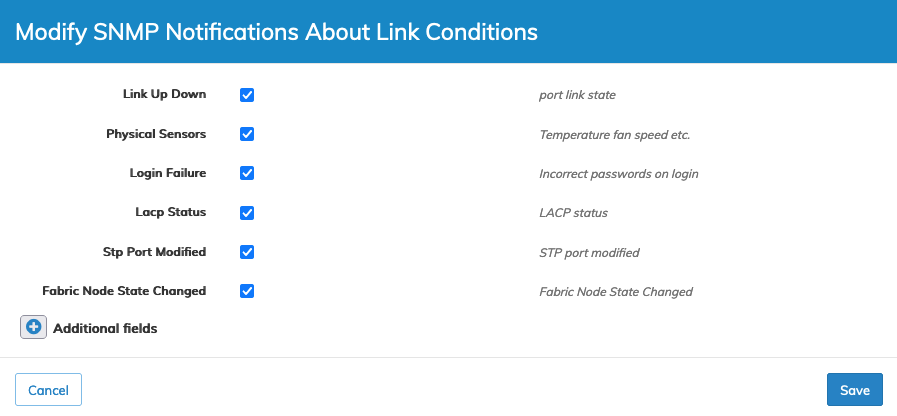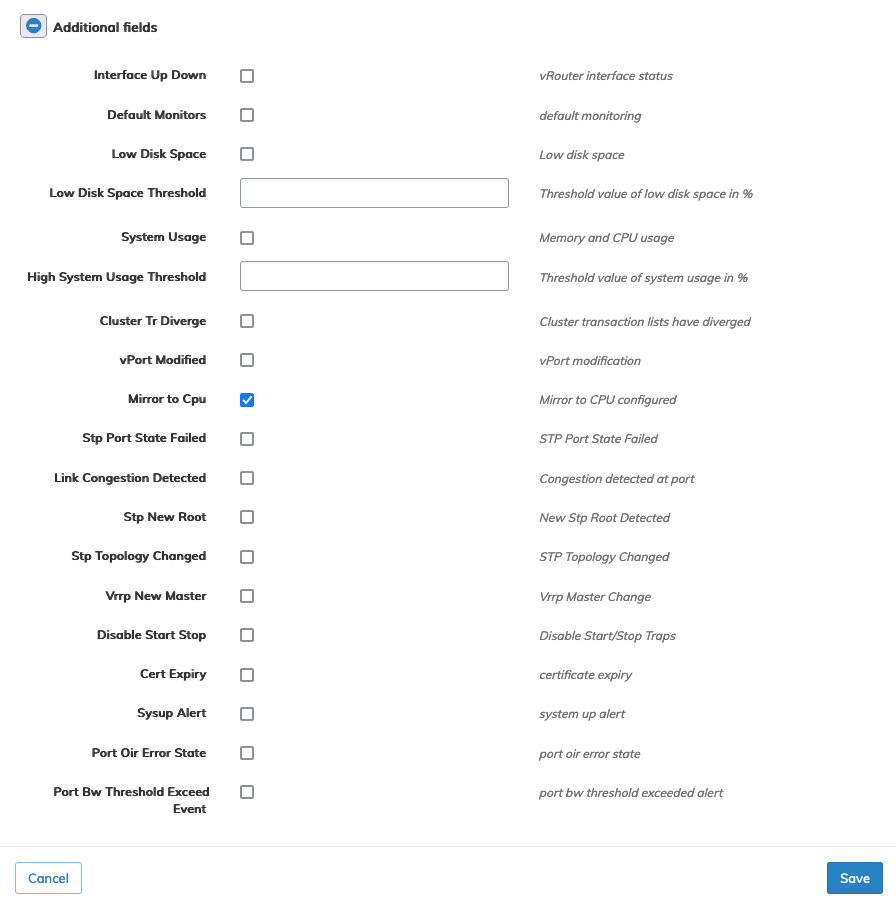
SNMP - Trap Enable
Security/Monitoring SNMP Trap Enable
Caution: SNMP - Trap Enable is an Early Field Trial (EFT) feature. EFTs are intended for test environments and are not supported for use in production networks. You should consult your local partner or Pluribus Networks account team before using any EFT feature or to provide feedback.
There are features and functions used in UNUM Manager and UNUM Analytics that are common throughout the user interface (UI). Please refer to the Common Functions section for more information on the use of these functions and features.
SNMP Trap Enable
Selecting Manager → Security/Monitoring → SNMP Trap Enable displays the SNMP Trap Enable dashboard with a list of any existing SNMP Trap Enable settings.
Select the applicable Fabric from the left-hand navigation bar and the dashboard updates showing all SNMP Trap Enable entries from all switches within the Fabric.
Note: If no entries exist a "No Data Exists" message is displayed. You must first configure an entry on a switch. Prerequisite settings and configuration may be required.
The dashboard displays a list of existing SNMP Trap Enable entries by Switch name. Additional parameters include: Link Up Down, Physical Sensors, Login Failure, LACP Status, STP Port Modified, and Fabric Node State Changed.

Manager Security/Monitoring SNMP Trap Enable Fabric Dashboard
Select the applicable switch from the Fabric and the dashboard updates automatically with SNMP Trap Enable entries. Parameters include: Link Up Down, Physical Sensors, Login Failure, LACP Status, STP Port Modified, and Fabric Node State Changed.

Manager Security/Monitoring SNMP Trap Enable
Modify Trap Enable
To modify a SNMP Trap Enable entry use Edit by selecting the Cog ![]() icon to make changes to the SNMP Trap Enable configuration which include:
icon to make changes to the SNMP Trap Enable configuration which include:
•Link Up Down – (checkbox) – port link state.
•Physical Sensors – (checkbox) – sensors for temperature, fan speed, etc.
•Login Failure – (checkbox) – Incorrect passwords on login.
•Lacp Status – (checkbox) – LACP Status.
•STP Port Modified – (checkbox) – STEP port modified.
•Fabric Node State Changed – (checkbox) – Fabric Node State Changed.

Manager Security/Monitoring SNMP Trap Enable Modify Settings
Additional configuration parameters are modified by clicking on the ![]() icon for Additional Fields. Additional fields include:
icon for Additional Fields. Additional fields include:
•Interface Up Down – (checkbox) – vRouter interface status.
•Default Monitors – (checkbox) – Default monitoring.
•Low Disk Space – (checkbox) – Low disk space
•Low Disk Space Threshold – Threshold value of low disk space in percentage (%)
•System Usage – (checkbox) – Memory and CPU usage
•High System Usage Threshold – Threshold value of system usage in percentage (%)
•Cluster Tr Diverge – (checkbox) – Cluster transaction lists have diverged
•vPort Modified – (checkbox) – vPort modification
•Mirror to CPU – (checkbox) – Mirror to CPU configured
•STP Port State Failed – (checkbox) – STP Port State Failed
•Link Congestion Detected – (checkbox) – Congestion detected at port
•STP New Root – (checkbox) – New STP root detected
•STP Topology Changed – (checkbox) – STP Topology Changed
•Vrrp New Master – (checkbox) – vrrp Master change
•Disable Start Stop – (checkbox) – Disable Start/Stop Traps
•Cert Expiry – (checkbox) Certificate expiry.
•Sysup Alert – (checkbox) System Up alert.
•Port Oir Error State – (checkbox) Port Oir error state.
•Port Bw Threshold Exceed Event – (checkbox) Port bw threshold exceeded alert.

Manager Security/Monitoring Create SNMP Trap Enable Modify Settings Additional Parameters
Click Save to continue or Cancel to return to the previous screen without saving any changes.
